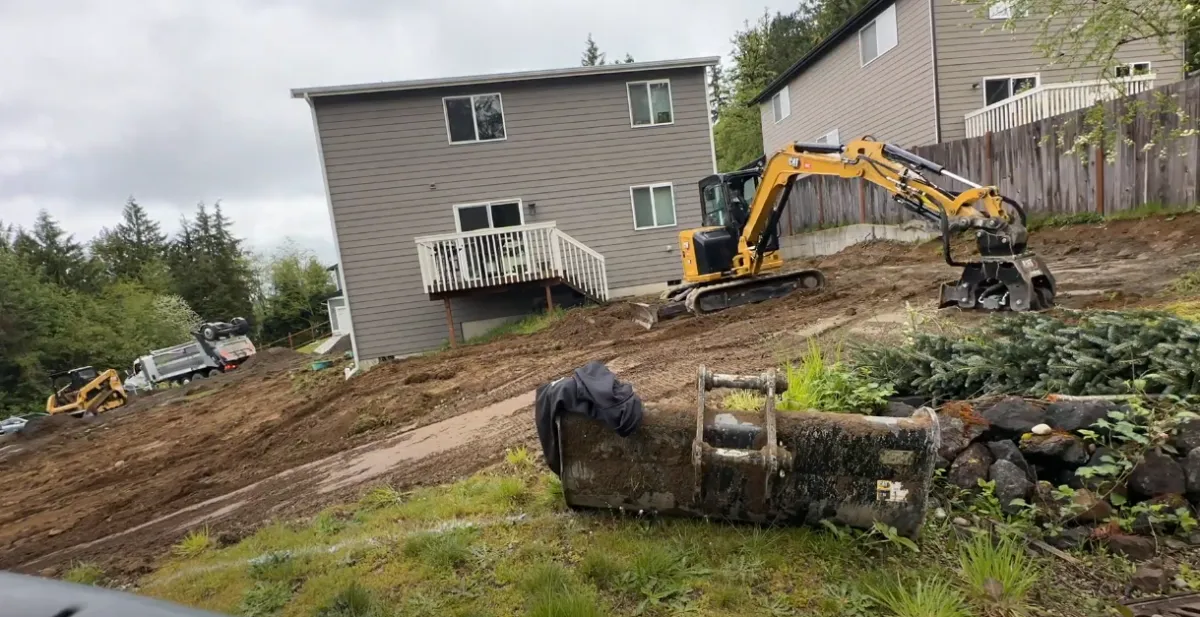Serving: Pierce, Kitsap, Mason and Thurston counties

Expert Excavation Services Near Kitsap County, Washington: What You Need to Know
Understanding Excavation Services Near Kitsap County, Washington
Excavation is a crucial step in many construction projects, whether you're preparing land for new development, undertaking a home renovation, or addressing site-specific issues. For residents and businesses in Kitsap County, Washington, understanding the nuances of excavation can help ensure a successful project. Here’s a comprehensive guide on what excavation entails, the services available, and answers to common questions you might have.
What Is Excavation?
Excavation involves the removal of earth or soil to create a specific shape or prepare a site for construction. This process is essential for creating foundations, installing drainage systems, or leveling land. Excavation work can vary in scale from small residential projects to large commercial undertakings.
Services Offered
Site Preparation: Before construction begins, excavation services prepare the site by clearing vegetation, grading, and removing any obstacles like boulders or debris. This step is critical for creating a stable foundation and ensuring proper drainage.
Foundation Excavation: For new buildings or additions, excavation is required to dig trenches or holes for foundations. This process involves precise digging to ensure the foundation is level and stable.
Trenching: Trenching is often needed for utility installation, including water lines, sewer systems, and electrical cables. Proper trenching is essential to avoid damage to existing structures and ensure that utilities are correctly installed.
Land Clearing: For large plots of land, excavation services can clear trees, stumps, and other obstacles. This is particularly important for projects where a large area needs to be leveled or prepared for future development.
Drainage Solutions: Excavation also plays a vital role in creating effective drainage systems. This includes installing French drains, grading for proper runoff, and digging sump pits to prevent water accumulation.
Pond Construction: For those looking to add a pond or water feature to their property, excavation is required to shape and dig the pond, ensuring proper depth and contours for aquatic life and aesthetics.
Common Questions and Answers
1. What should I consider before starting an excavation project?
Before beginning any excavation project, consider the following:
Permits: Ensure you have the necessary permits from local authorities. Some projects may require specific permissions, especially if they impact public utilities or the environment.
Soil Type: Different soil types can affect excavation methods and equipment. Consulting with a professional can help determine the best approach based on soil conditions.
Utility Lines: Be aware of any existing utility lines (water, gas, electrical) to avoid damaging them during excavation. A utility locator service can help identify their locations.
Project Scope: Clearly define the scope of your project to ensure that the excavation services are aligned with your needs.
2. How long does an excavation project typically take?
The duration of an excavation project depends on several factors, including the size and complexity of the project, soil conditions, and weather. Small residential projects may take a few days, while larger commercial or land clearing projects could take several weeks. It's best to discuss timelines with your excavation contractor to get a more accurate estimate based on your specific project.
3. What are the common challenges faced during excavation?
Common challenges include:
Unforeseen Obstacles: Hidden rocks, utility lines, or underground structures can complicate excavation and lead to unexpected delays or additional costs.
Weather Conditions: Rain or extreme weather can impact excavation work, causing delays or affecting soil stability.
Soil Stability: Certain soil types, such as clay or loose sand, may pose challenges in terms of stability and drainage.
4. How much does excavation cost?
Excavation costs vary widely based on factors like project size, soil type, and location. Typically, costs are calculated based on the volume of earth moved, the complexity of the project, and any additional services required. It's advisable to get multiple quotes from local excavation contractors to compare prices and services.
5. How can I find a reliable excavation contractor in Kitsap County?
Finding a reliable contractor involves:
Research: Look for contractors with good reviews and a proven track record in the Kitsap County area.
Recommendations: Ask for recommendations from friends, family, or local construction professionals.
Consultations: Meet with potential contractors to discuss your project and get detailed estimates. Ensure they are licensed and insured.
6. What safety measures are taken during excavation?
Safety is paramount in excavation projects. Common safety measures include:
Shoring: To prevent cave-ins, shoring or trench boxes are used to support the sides of trenches.
Protective Gear: Workers wear appropriate protective gear, such as helmets, gloves, and safety boots.
Traffic Control: If excavation occurs near roadways, traffic control measures are implemented to ensure safety.
Conclusion
Excavation is a vital component of many construction and land development projects. Whether you're working on a residential renovation or a large commercial endeavor in Kitsap County, understanding the basics of excavation and addressing common questions can help ensure a smooth and successful project. For the best results, work with experienced professionals who can provide expert advice and high-quality service tailored to your needs.
